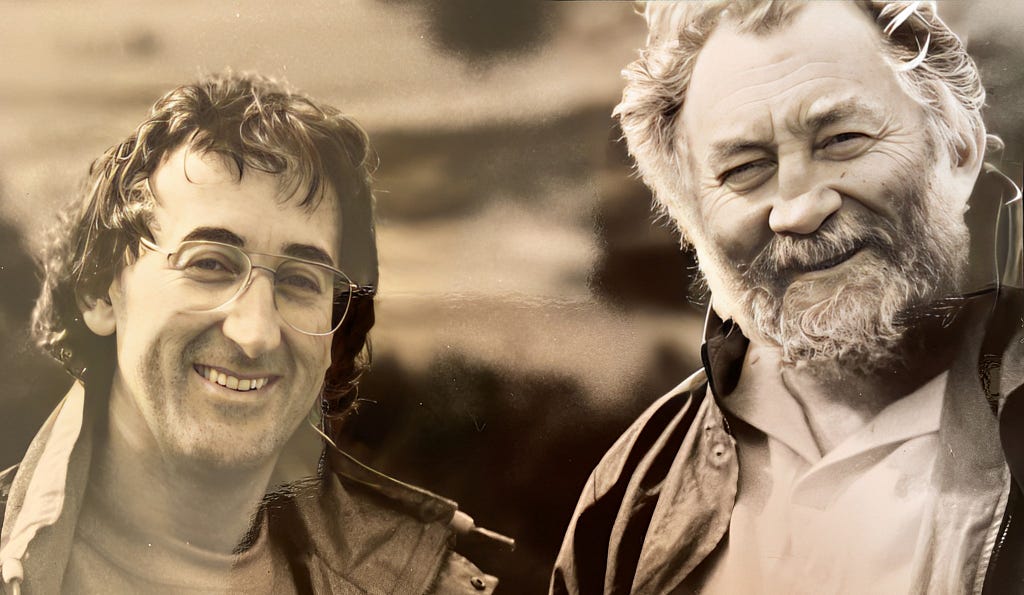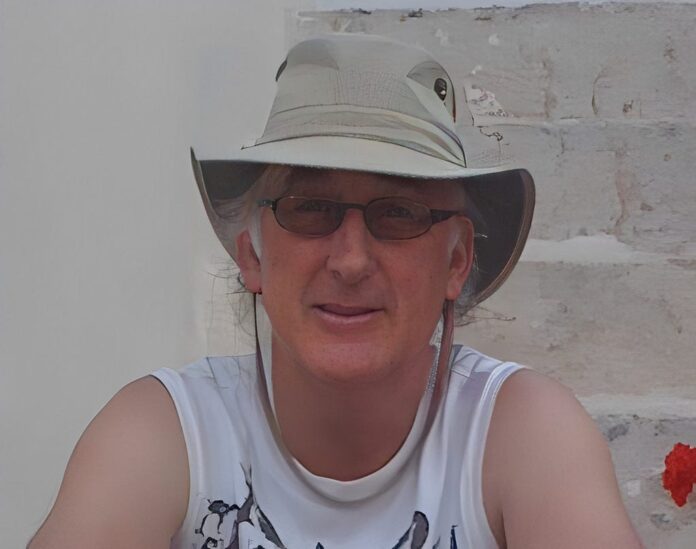Social Impact Heroes Helping Our Planet: Why & How Dr Brendan Quayle Of DBA Is Helping To Change Our World
An Interview With Martita Mestey
Don’t buy or eat processed food. Eat organic when you can. Avoid using plastic — use plant cellulose products.
As part of my series about “individuals and organizations making an important social impact”, I had the pleasure of interviewing Dr Brendan Quayle.
Born in Scotland in 1951, raised in Ireland of Manx ancestry, I have always had strong Celtic leanings and having lived in beautiful precious places, retained a lifelong interest in the Environment, and the countryside of the North.
I eventually became an anthropologist, studying among the hill tribes of the High Himalaya for my PhD. with an interest in the relationship between human culture and the environment.
My career took me into environmentalism, campaigning and working with David Bellamy, in books, practical projects and television films — becoming early pioneers of the concept of sustainability — and now into environmental fiction as a way of getting messages to a wider audience, particularly children.
Thank you so much for doing this with us! Before we dig in, our readers would like to get to know you a bit. Can you tell us a bit about how you grew up?
I left Troon in Scotland when I was about 11, then went to school in Downpatrick, the “tomb of the Saint” in Northern Ireland and went to college in Belfast during the troubles but survived to go on to do my PhD in Durham and begin my career. The ancestral graveyard of my father’s mother’s family, and where he grew up, is an island in the middle of a lake, Loughinisland. The island has two ruined abbeys and probably dates to early Celtic times when it was a Cashel, a small fortress and sacred place to the gods. This part of County Down, as with the Ayrshire Coast in Scotland is very beautiful and I had an idyllic childhood running wild in woods, beaches and across fields and golf courses.
You are currently leading a social impact organization that is making a difference for our planet. Can you tell us a bit about what you and your organization are trying to change in our world today?
Formerly I ran an environmental company involved in creating wetlands and nature reserves as carbon sinks and wildlife sanctuaries, before moving into films and books. My first book, the seminal, Turning the Tide, was attached to the award-winning film series of the same name and set an agenda for environmental change. Now I work through my books, again trying to make environmental change accessible to all, particularly children, and my own projects including a wild wood at my home.
Can you tell us the backstory about what inspired you to originally feel passionate about this cause?
There were two triggers to becoming an environmentalist, though I was already sympathetic to countryside conservation: (devising my first nature reserve aged 14 on the River Quoile) the first were the mudslides and floods in the Himalayas during my time there `and after, a direct consequence of deforestation, changes in land use and the coming of modernity; the second was the then government at home in the UK, led by Tony Benn, expanding the disastrous nuclear power program. These events changed me in a way, and I have not changed.
Many of us have ideas, dreams, and passions, but never manifest them. They don’t get up and just do it. But you did. Was there an “Aha Moment” that made you decide that you were actually going to step up and do it? What was that final trigger?
When I met Professor David Bellamy MBE the world-famous conservationist — and he made me realize that I could make a career in the environment, outside academia, and asked me to help him with his campaigns. This was chance — or maybe destiny!!
Many people don’t know the steps to take to start a new organization. What are some of the things or steps you took to get your project started?
My environmental career grew gradually, initiating an environmental television series, Turning The Tide, which David presented and subsequently became an award winner (the Council of Europe prize for best documentary) and was shown around the world, then writing the book of the series, published by Collins; to other books — Englands Last Wilderness and Wetlands; a series of articles in national newspapers on environment and countryside, leading to the establishment of DBA, a consulting firm set up to advise government and business on environmental matters, and habitat based project building.
The current project
Some of my ideas (anthropological and environmental), I felt could only really be promoted to a wider audience, (particularly young children and adults) through a work of fiction. The Shining Stone, published by Silverwood and available on Amazon and through retailers is a moral folk tale in three parts.
Can you share the most interesting story that happened to you since you began leading your company or organization?
Many scary stories involving near accidents with helicopters and mountains — too many to tell, and at least I’m still alive!!
It has been said that sometimes our mistakes can be our greatest teachers. Do you have a story about a humorous mistake that you made when you were first starting and the lesson you learned from that?
Not being cautious enough. When a sub-contractor tried to steal our work after having been the beneficiary of work from me, I realized that I could never work with someone I didn’t trust.
None of us can be successful without some help along the way. Did you have mentors or cheerleaders who helped you to succeed? Can you tell us a story about their influence?
David Bellamy saw in me something that he knew was a powerful aide — insight maybe, nouse, writing ability, I don’t know. And that was a help. Michael Dower, the great campaigner and National Park leader also encouraged me. And in India Mr. Patel, who came to see me in my village every day, guided me on the spiritual side — how to lead my life and how it should be at the end.
Are there three things the community, society, or politicians can do to help you address the root of the problem you are trying to solve?
Some genuine commitment to sustainability would be a revelation. Too many measures are too little and too late. Forty years ago, we said that business and industry would follow the lead if environmental legislation led the way. Why don’t all new build houses have solar panels; why are not all cars electric; why is public transport so crap, why are industrial famers allowed to pour chemicals on the land, killing our soil and rivers to feed an obesity epidemic; why are fast food makers not heavily taxed for feeding people with non-food and polluting our country with plastid waste; why is cellulose plastic manufacturing not encouraged; why are plastic makers not taxed for creating unsustainable products that end up in the ocean? The UK is the worst of all European countries on green matters!
How would you articulate how a business can become more profitable by being more sustainable and more environmentally conscious? Can you share a story or example?
Start with an audit. Assess all your inputs and outputs. Do a carbon impact calculation and look for environmental gains — even if offsets. Then set carbon targets and use these in all your promotions and apply to your selection of sub-contractors and source materials. Riverford Organic Farms and Box Schemes in Devon a brilliant example, also Patrick Holden’s Sustainable Food Trust (see their newsletter). I met with Patrick 40 years ago when we filmed him for Turning the Tide, and he is the best advocate of environmental responsible farming I know.

What are your “5 things I wish someone told me when I first started” and why? Please share a story or example for each.
Can’t think of anything. We were so new. No-one had attempted anything like it before.
If you could tell other young people one thing about why they should consider making a positive impact on our environment or society, like you, what would you tell them?
Don’t buy or eat processed food. Eat organic when you can. Avoid using plastic — use plant cellulose products.
Can you please give us your favorite “Life Lesson Quote”? Can you share how that was relevant to you in your life?
Don’t just say it, do it. Do what you say. The world is full of people saying or complaining but not enough doing.
Is there a person in the world, or in the US with whom you would like to have a private breakfast or lunch with, and why? He or she might just see this, especially if we tag them. 🙂
Barack Obama or Rory McIlroy or both.
These are both world-wide well-known figures, both associated with decency and hard work with influence, past and present. I don’t know their environmental leanings, but it would be interesting to find out what these are and how they can be furthered in their own lives ongoing work and the world of golf in Rory’s case (It would be interesting also to share stories with Rory about growing up in N Ireland. I won a schoolboy’s golf cup in his home course in Belfast before he was born. And a golf tip would be welcome — as indeed would a round at Augusta with Rory, Barack and Darren Clarke! Well I could dream!)
How can our readers follow you online?
(Website in draft form only. Finished version available in May 2023)
This was very meaningful, thank you so much. We wish you only continued success on your great work!
Thank you. I enjoyed writing it. Good luck with your endeavor. The world needs more of you. All Best wishes. Brendan
Social Impact Heroes Helping Our Planet: Why & How Dr Brendan Quayle Of DBA Is Helping To Change… was originally published in Authority Magazine on Medium, where people are continuing the conversation by highlighting and responding to this story.


